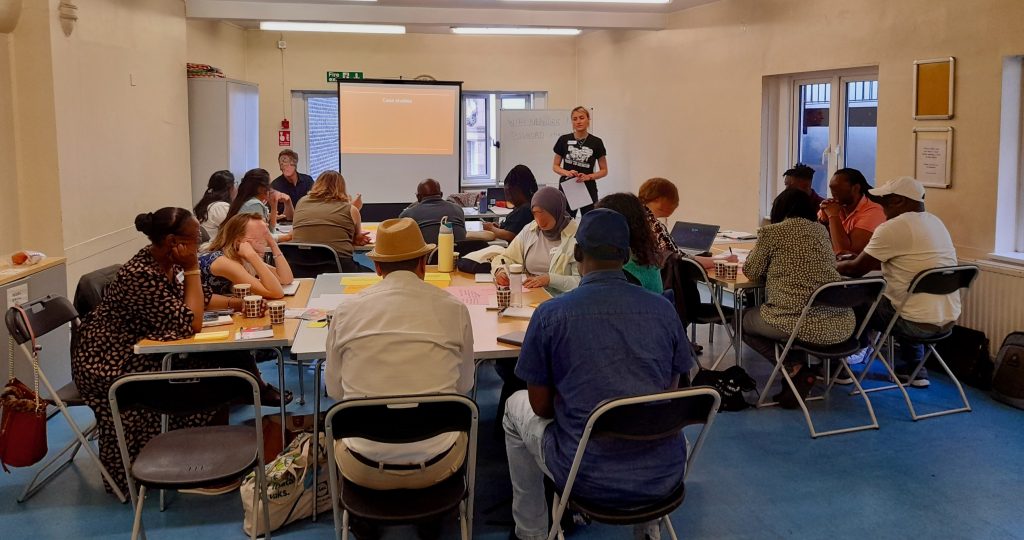
On 21st June 2024, we ran a workshop on the 10 year route and fee waivers. This was a pilot workshop, and the first time we have delivered a workshop on these topics. We ran this in collaboration with Notre Dame Refugee Centre in London.
Over the last few months at Right to Remain, we have been expanding our focus, and deepening our knowledge areas. We have created many new Toolkit pages, on immigration topics outside of the asylum system, such as on Work Exploitation and Migrant Workers Rights, and the 10 Year Route to Indefinite Leave to Remain. We have also published legal updates, including on the process of Applying for a Fee Waiver.
This focus of our legal education work is not accidental, and is due to the fact that immigration is more than asylum, and we have a responsibility to reach those with other forms of precarious immigration status.
What happened in this workshop?
Our aim for this workshop was to give participants an increased understanding of, and confidence in the process of making a limited leave application under the 10 year route, as well as understanding what a fee waiver is. We wanted to be clear that we would not be assisting participants to complete applications, but that the aim of the session was to increase familiarity with the process. This session was attended by individuals in the immigration system preparing for applications themselves, as well as support staff working in the sector. This mixed audience helped to keep the focus on general themes rather than on answering case-specific questions.
After an introduction to Right to Remain and our Toolkit for those who were not familiar with our work, we started the session with an interactive exercise to get to grips with key definitions. Participants worked in groups to discuss definitions for key terms, such as: 10 year route, family life, private life, Immigration Health Surcharge, fee waiver, Section 3c Leave, NRPF.
Many of these terms are confusing for people navigating the 10 year route, as well as for those supporting them. It is important that our workshops are able to demystify legal terms, and this exercise also helped to ensure all workshop participants were on an equal footing.
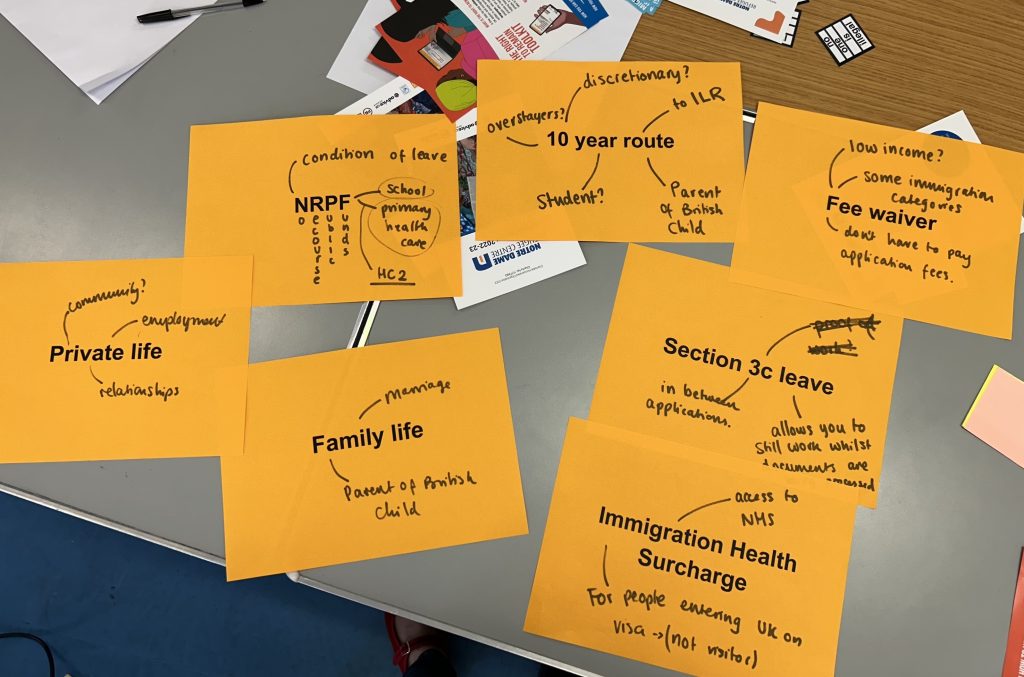
After this, we discussed the different types of application which are possible under the 10 year route: under either ‘Family life’ or ‘Private life’ grounds. We spoke about what these legal terms mean, and what kind of evidence you might need to make an application.
After a break, we continued on to the second part of the session which was about fee waivers. We did a short quiz on fee waivers, which included the questions:
For one adult on the 10 year route, what is the cost of applications over the 10-year period (without a fee waiver)? Around £13,000
According to research from Praxis, what percentage of people surveyed did not know that a fee waiver is available? 2/3s (this suggests that a lot of people may be eligible for a fee waiver but do not apply for one)
Finally we did an interactive exercise using case studies – and asked groups to consider each scenario, what kind of application the person could make (family life or private life), whether they can apply for a fee waiver, and what evidence they might need to provide. This exercise gave participants an opportunity to talk about other potential issues that might arise during an application – including difficulty gathering evidence.
It was during this exercise that participants shared their frustration at the length of the process, and the difficulty that so many face in navigating the 10 year route. Many also shared that they have heard of people being so discouraged by the complexity of applying for a fee waiver, and the length of delay in receiving an outcome, that they borrow money to help cover costs rather than apply for a fee waiver.
People also shared that for some people, it can be even longer than 10 years before they have indefinite leave to remain – as there is no fee waiver for an application for indefinite leave to remain. This means some people are forced to renew their limited leave to remain with a fee waiver at the end of the 10 year period, rather than make an indefinite leave application.
Feedback
Many of our workshops start with an exercise which asks participants to rank how confident they feel about the topics we are going to cover out of 10. We return to this number at the end of the session, and ask participants to consider if they feel more confident, having completed the workshop. It was encouraging to collect post-it notes at the end of the session, which showed that people’s measure of their confidence with the topics had increased.
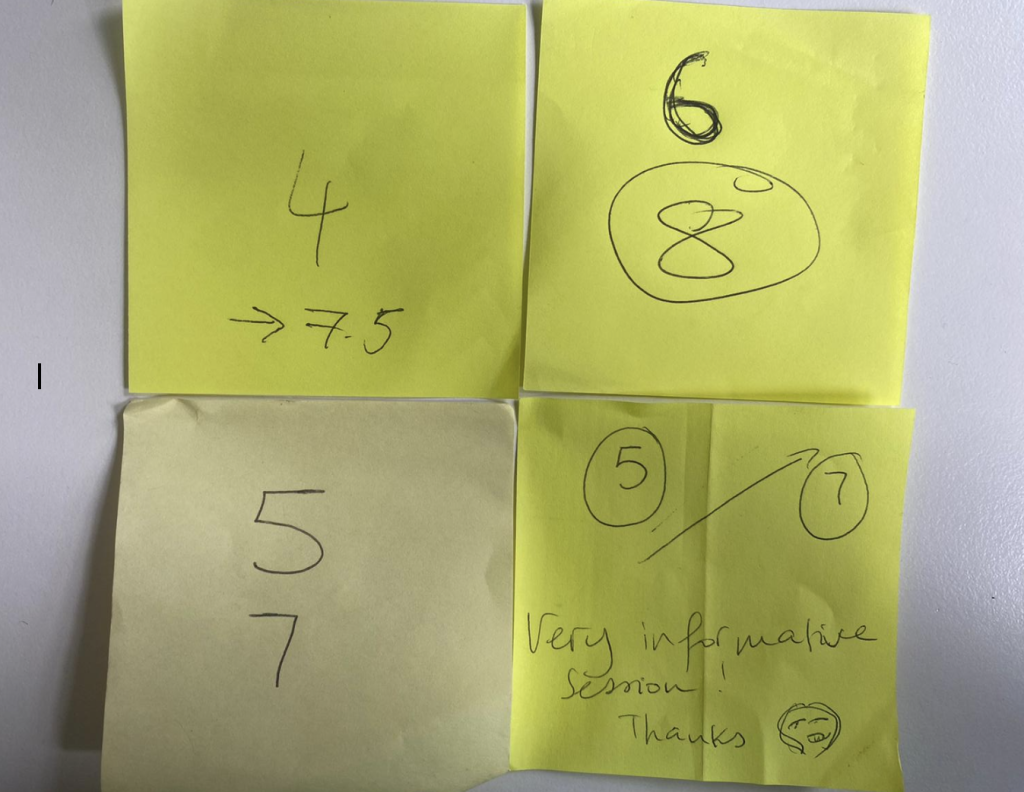
We also asked participants to share more detailed feedback with us, which will help us improve this workshop.
Feedback we received included:
- I really appreciate your efforts in helping us navigate the legal journey as it is very complicated and confusing.
- Staff delivering this workshop were very friendly, kind, welcoming and knowledgeable.
- Everything was great and very useful. Thanks for the knowledge I needed for my current situation.
- Very accessible and clear explanations. It was good to learn there is a toolkit available to help people with this.
- Loved that the workshop was in person. Very useful to talk to staff in breaks and before and after to share ideas.
We are looking forward to running this workshop again in the near future, get in touch with us if you’d like to attend!

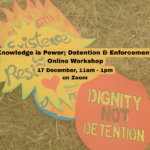









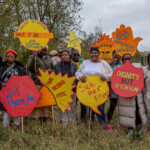
Discussion: